Qaku is a Web3-based Q&A platform. It started as an internal tool to cover team needs, but after positive feedback it was launched publicly for a wider audience interested in Web3 and browser-stored projects.
My role was to revisit the existing UX/UI, conduct research, and redesign the product with a high-fidelity interface. I worked closely with stakeholders, designers, and developers under time constraints to make the platform user-friendly and minimalistic.
The MVP was launched on Vercel and is now undergoing final implementation updates.
Qaku is a Web3-based Q&A platform. It started as an internal tool to cover team needs, but after positive feedback it was launched publicly for a wider audience interested in Web3 and browser-stored projects.
My role was to revisit the existing UX/UI, conduct research, and redesign the product with a high-fidelity interface. I worked closely with stakeholders, designers, and developers under time constraints to make the platform user-friendly and minimalistic.
The MVP was launched on Vercel and is now undergoing final implementation updates.
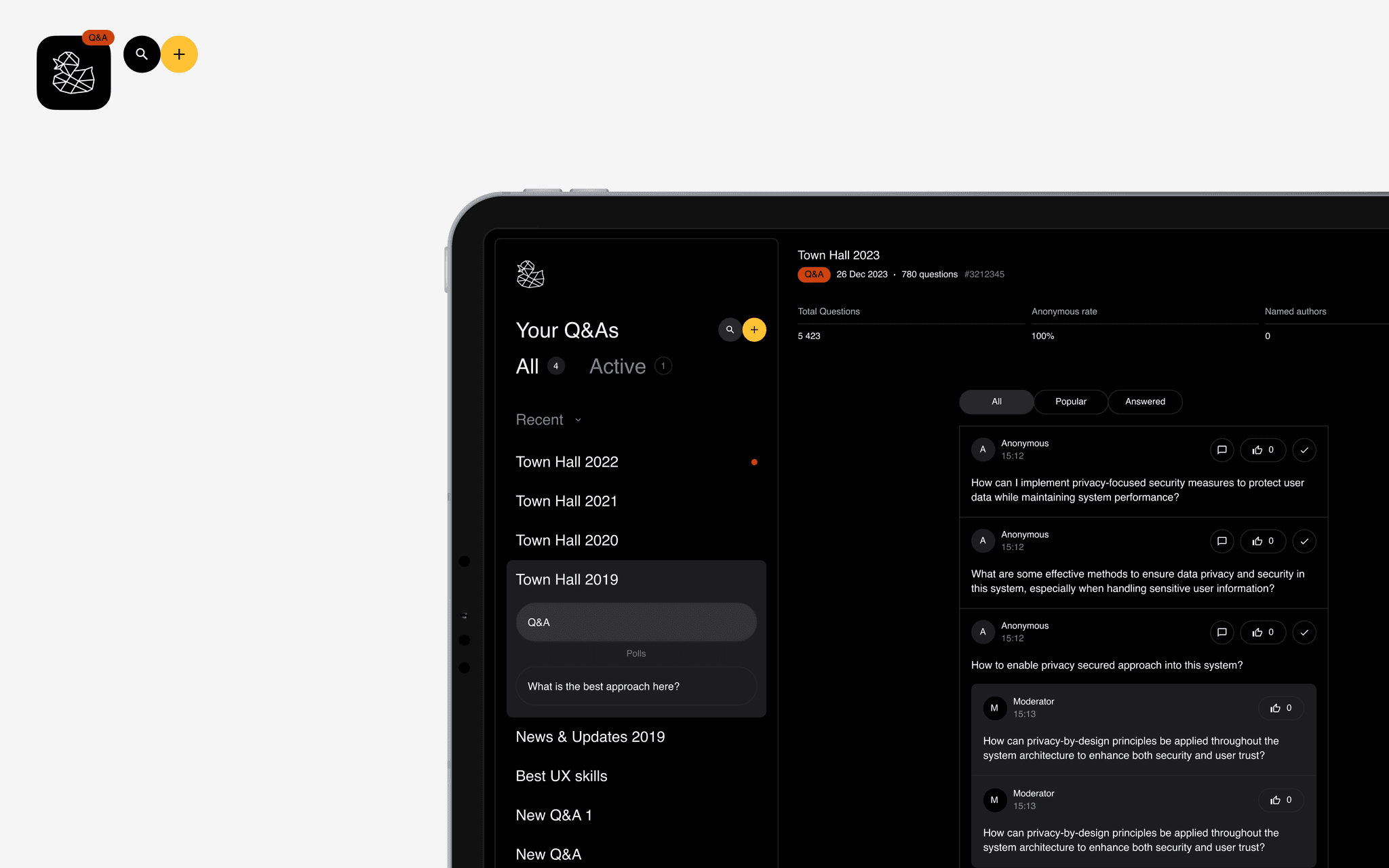



Approach
Approach
I began by reviewing the existing website and identifying the main flows and features:
Creating Q&A
Creating polls
Scheduling publishing
Integrating an external crypto wallet for enhanced identity
URL & node settings
Managing answers in real time
Browser-based storage of Q&As and polls
Since the team was already using Slido, I used it as the main UX reference. My research included analyzing real-time Q&A and poll use cases, looking at friction points such as cluttered interfaces and overly complex poll creation flows.
I also conducted internal interviews with the Waku team to understand their specific tasks, and collaborated with developers to map technical constraints.
I began by reviewing the existing website and identifying the main flows and features:
Creating Q&A
Creating polls
Scheduling publishing
Integrating an external crypto wallet for enhanced identity
URL & node settings
Managing answers in real time
Browser-based storage of Q&As and polls
Since the team was already using Slido, I used it as the main UX reference. My research included analyzing real-time Q&A and poll use cases, looking at friction points such as cluttered interfaces and overly complex poll creation flows.
I also conducted internal interviews with the Waku team to understand their specific tasks, and collaborated with developers to map technical constraints.
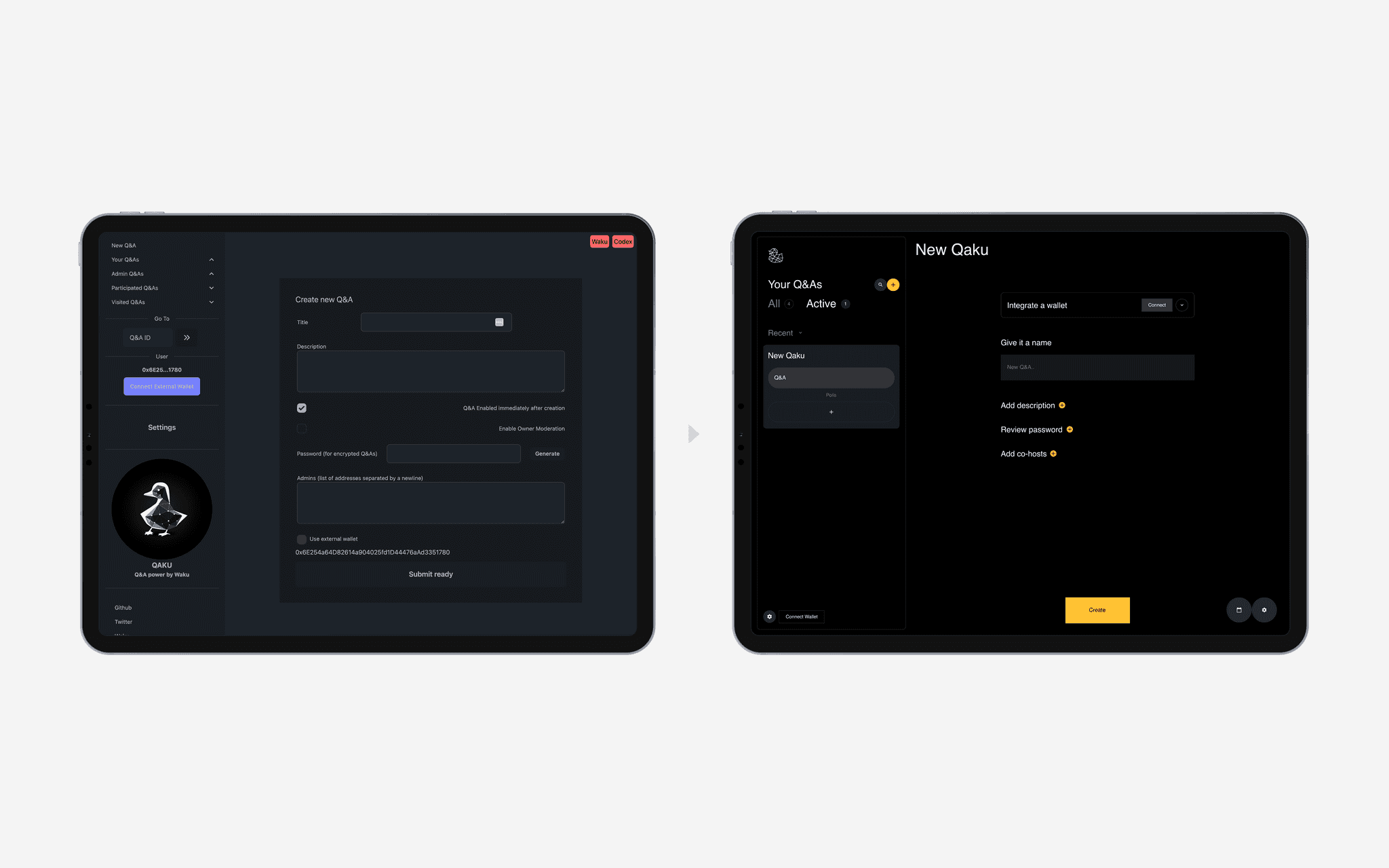

Before vs After
Before vs After
Key Problems Identified
Key Problems Identified
Single interface for both host and participants → clutter and confusion.
Too many input fields and unclear creation flow.
Managing Q&As lacked clarity and overview.
Side menu included redundant items (e.g., “Visited Q&As”).
Single interface for both host and participants → clutter and confusion.
Too many input fields and unclear creation flow.
Managing Q&As lacked clarity and overview.
Side menu included redundant items (e.g., “Visited Q&As”).
Solutions
Solutions
Separate flows for host and participant.
Reduced and reorganized input fields; secondary options collapsed.
Unified and simplified form fields.
Cleaned up the managing flow: added statistics, introduced dedicated pages for each Q&A/Poll.
Simplified side menu: only two main tabs (“All” and “Active”).
Added search and filtering by date.
Introduced a widget system for easier Q&A interaction across desktop and mobile.
Separate flows for host and participant.
Reduced and reorganized input fields; secondary options collapsed.
Unified and simplified form fields.
Cleaned up the managing flow: added statistics, introduced dedicated pages for each Q&A/Poll.
Simplified side menu: only two main tabs (“All” and “Active”).
Added search and filtering by date.
Introduced a widget system for easier Q&A interaction across desktop and mobile.
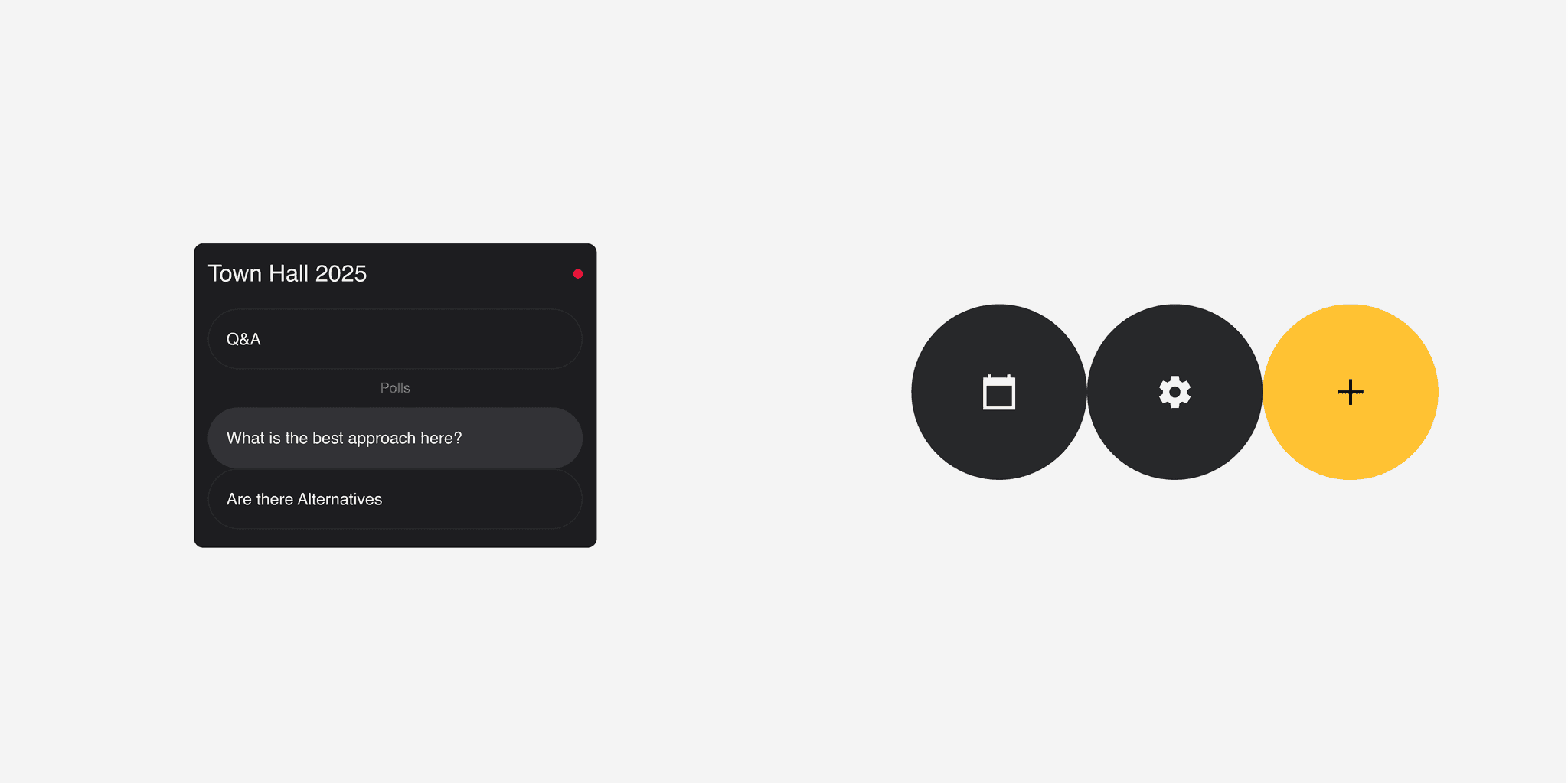



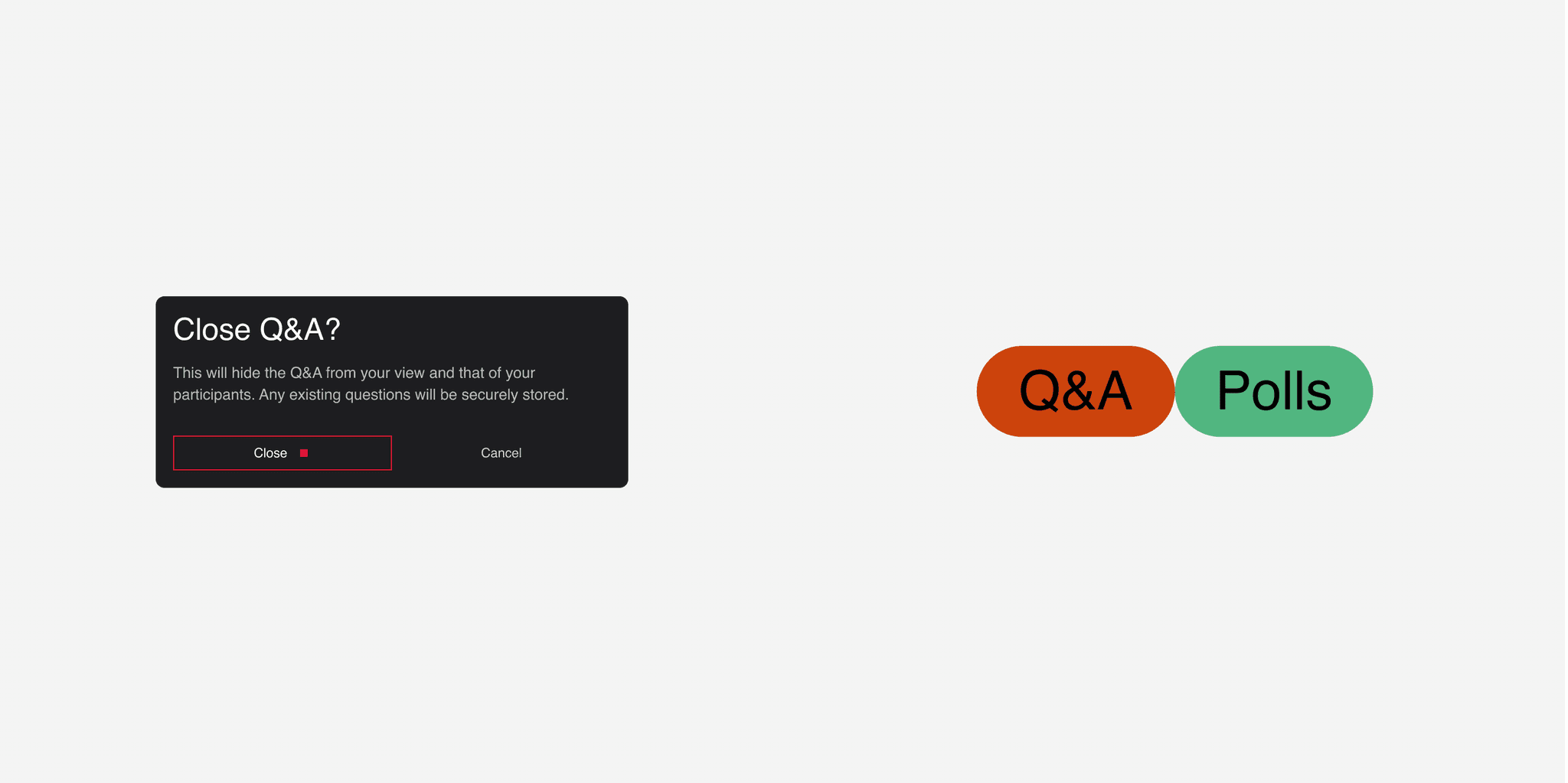

Design Approach
Design Approach
Since the platform was evolving into a public-facing product, I collaborated with graphic designers to refine the visual direction.
We agreed on a monochrome black-and-white UI with a minimalist aesthetic. To avoid a sterile look, I introduced yellow as an accent color for CTAs and interactive elements.
I then created a unified visual system — UI components, color styles, and typography variables — which streamlined developer handoff and made future design work faster and more consistent.
Since the platform was evolving into a public-facing product, I collaborated with graphic designers to refine the visual direction.
We agreed on a monochrome black-and-white UI with a minimalist aesthetic. To avoid a sterile look, I introduced yellow as an accent color for CTAs and interactive elements.
I then created a unified visual system — UI components, color styles, and typography variables — which streamlined developer handoff and made future design work faster and more consistent.
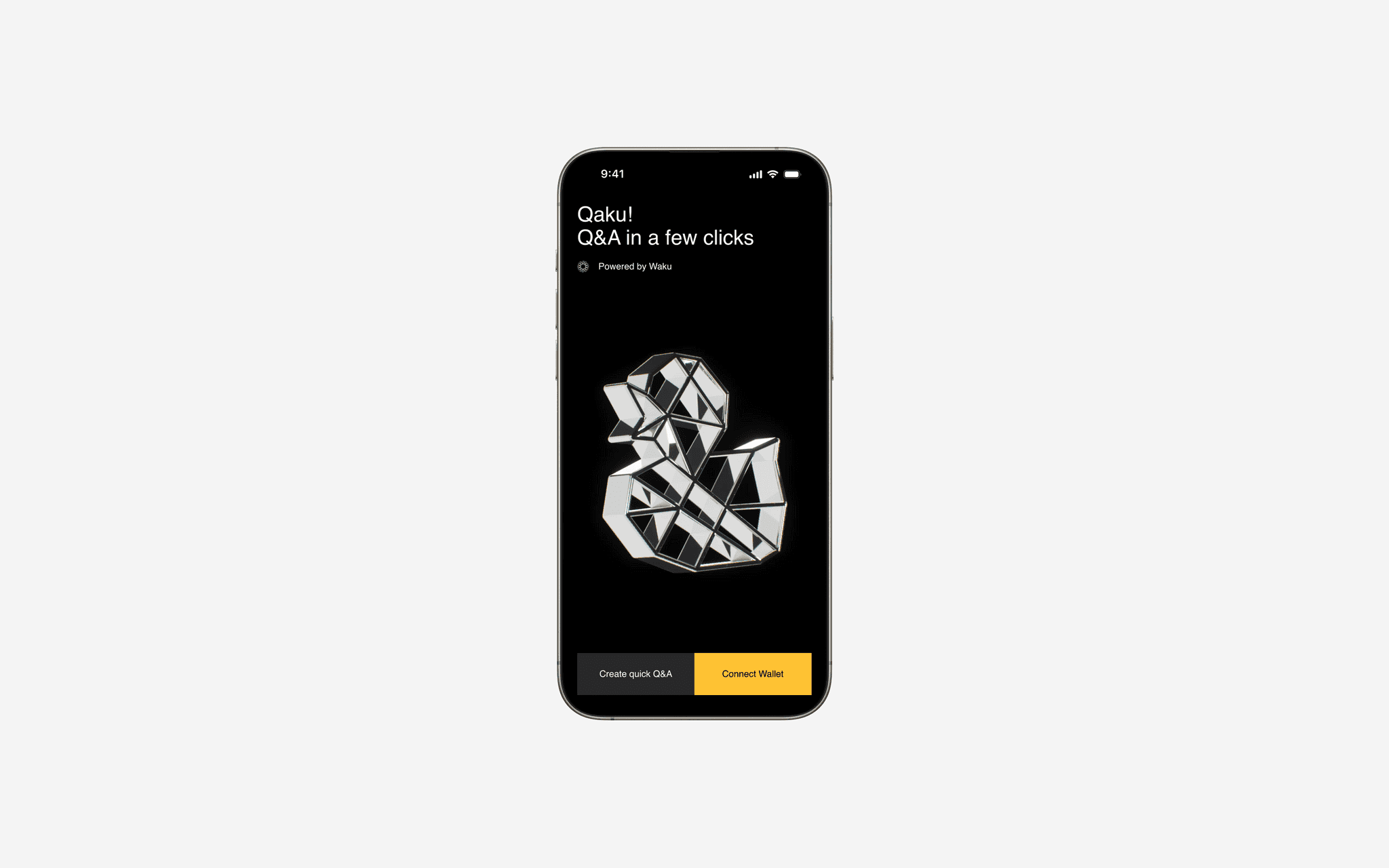

Mobile Landing page
Mobile Landing page
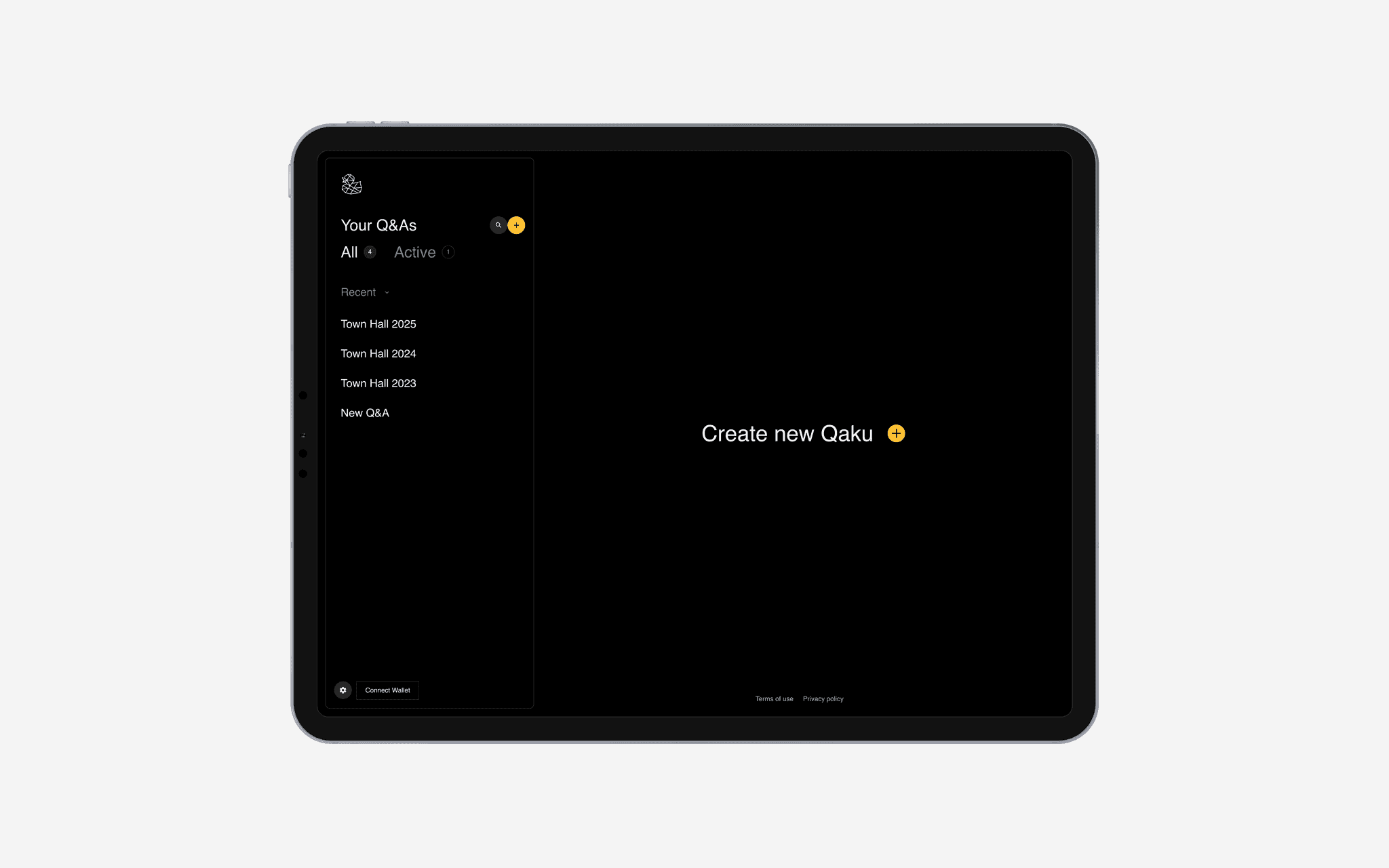

Home page
Home page
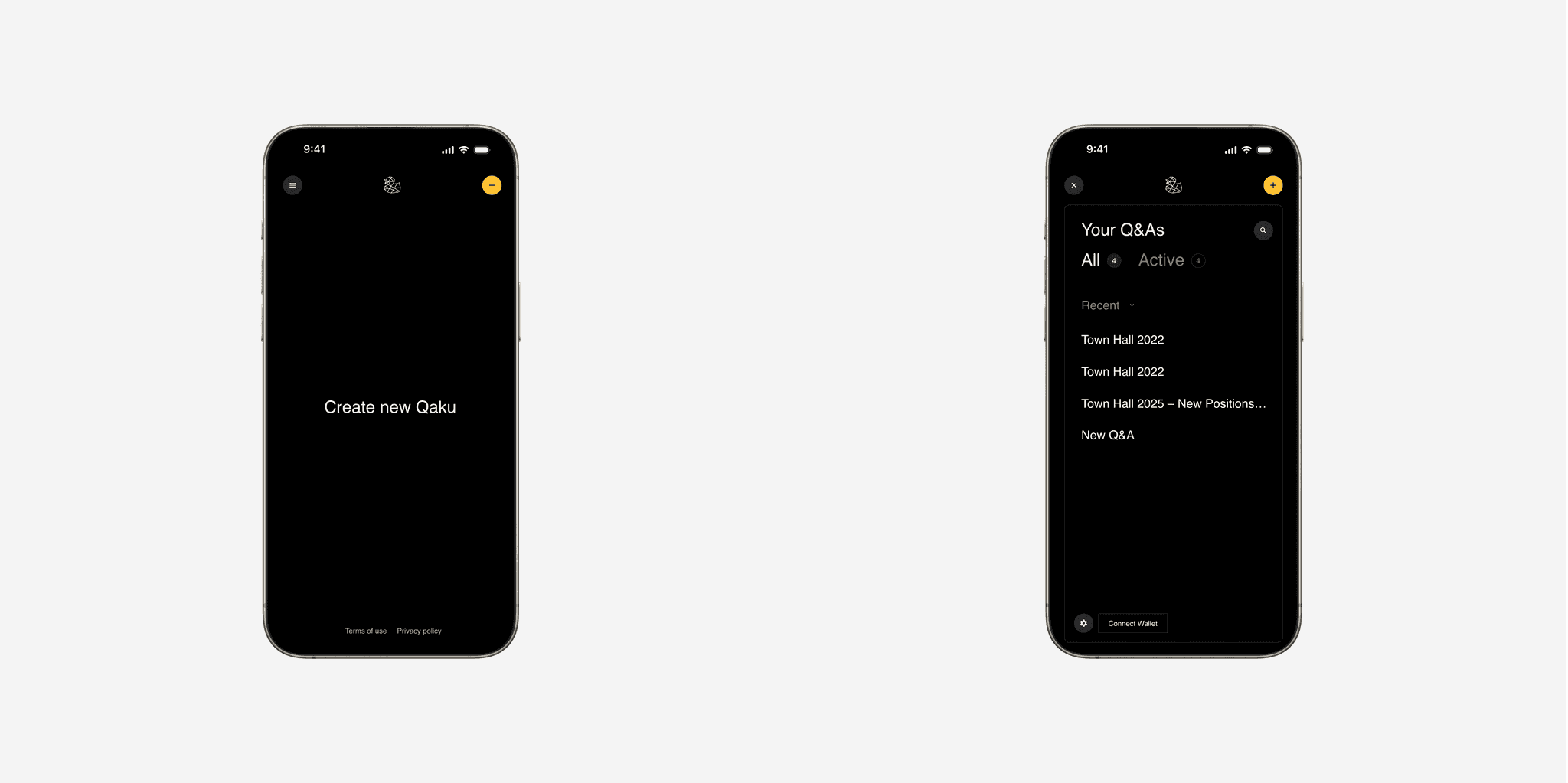

Mobile Home page
Mobile Home page
Testing & Outcomes
Testing & Outcomes
After launching the MVP, I conducted internal usability tests to identify critical issues. One example: the “Integrate wallet” panel drew too much attention despite being a secondary feature.
This was rebalanced in later iterations.
After launching the MVP, I conducted internal usability tests to identify critical issues. One example: the “Integrate wallet” panel drew too much attention despite being a secondary feature.
This was rebalanced in later iterations.
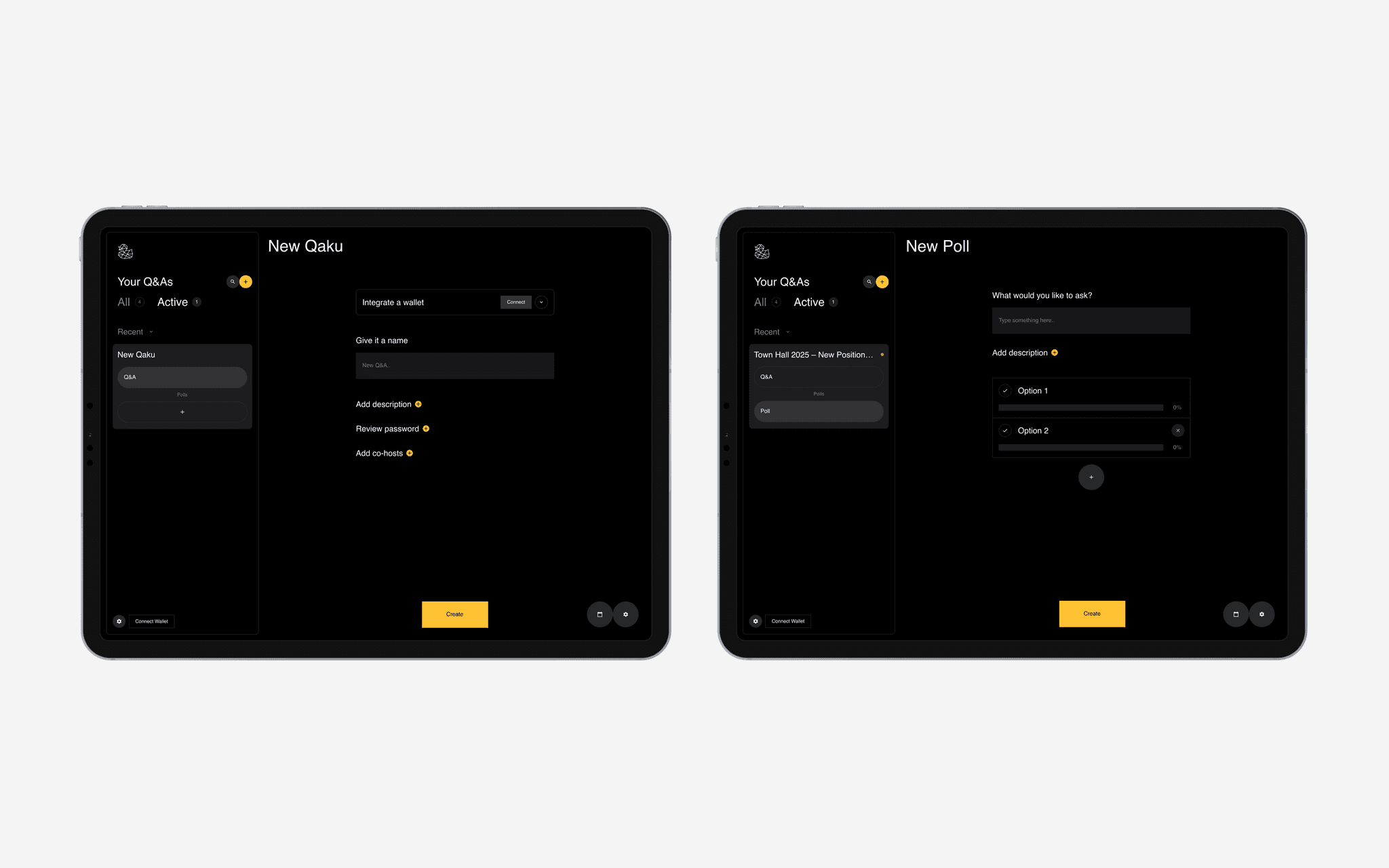

Q&A and Polls creation flow
Q&A and Polls creation flow
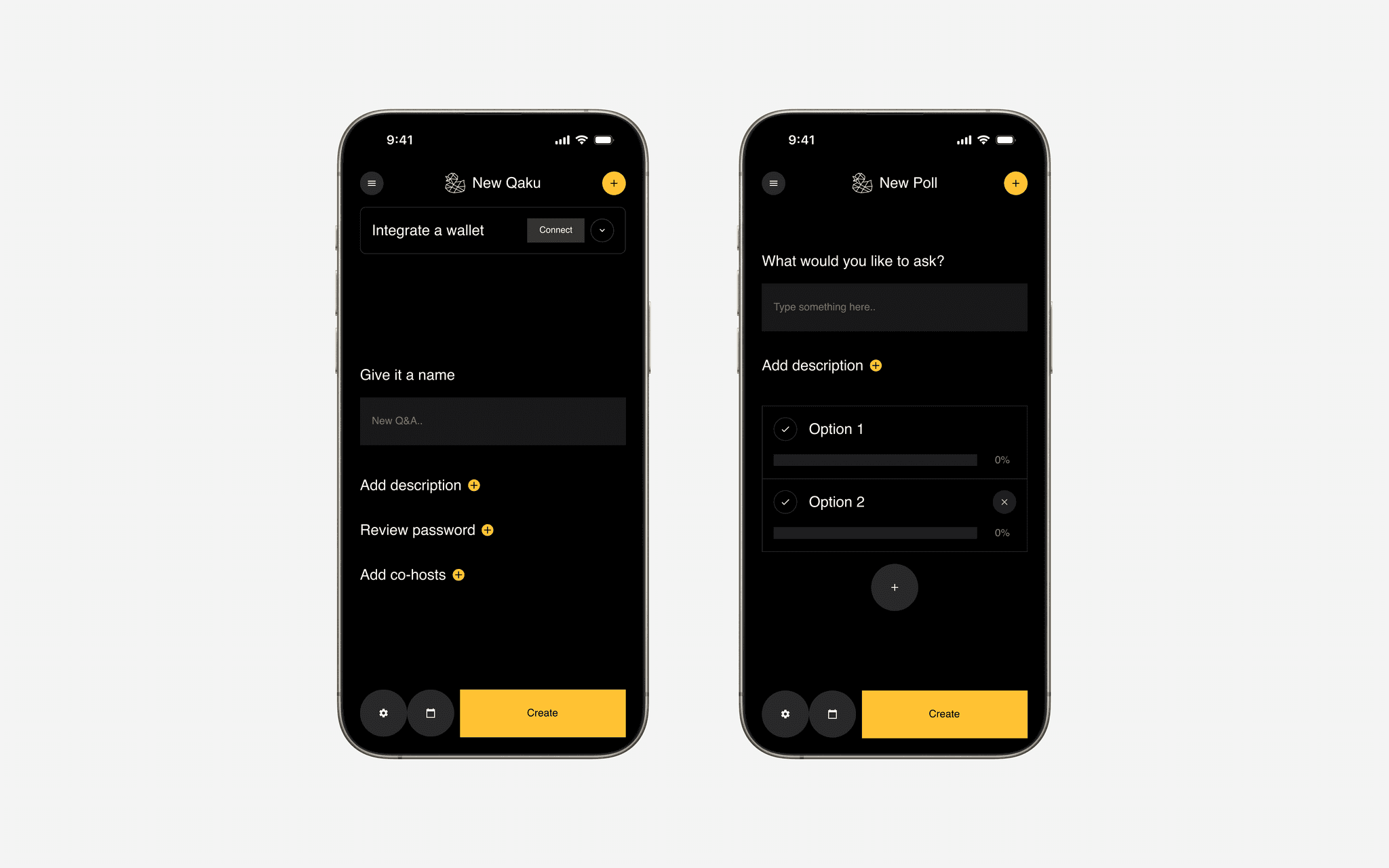

Mobile Q&A and Polls creation flow
Mobile Q&A and Polls creation flow
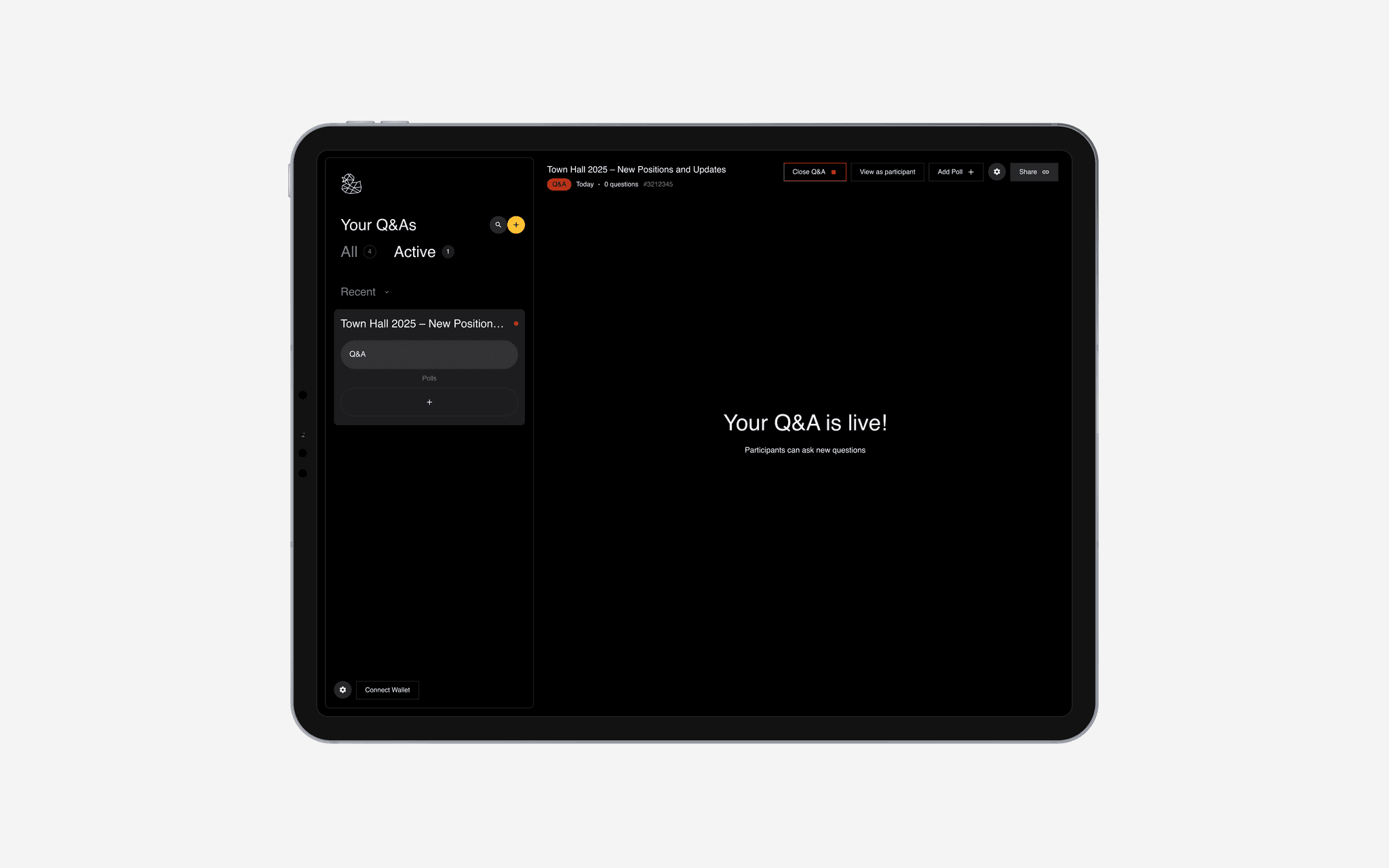

Published Q&A
Published Q&A
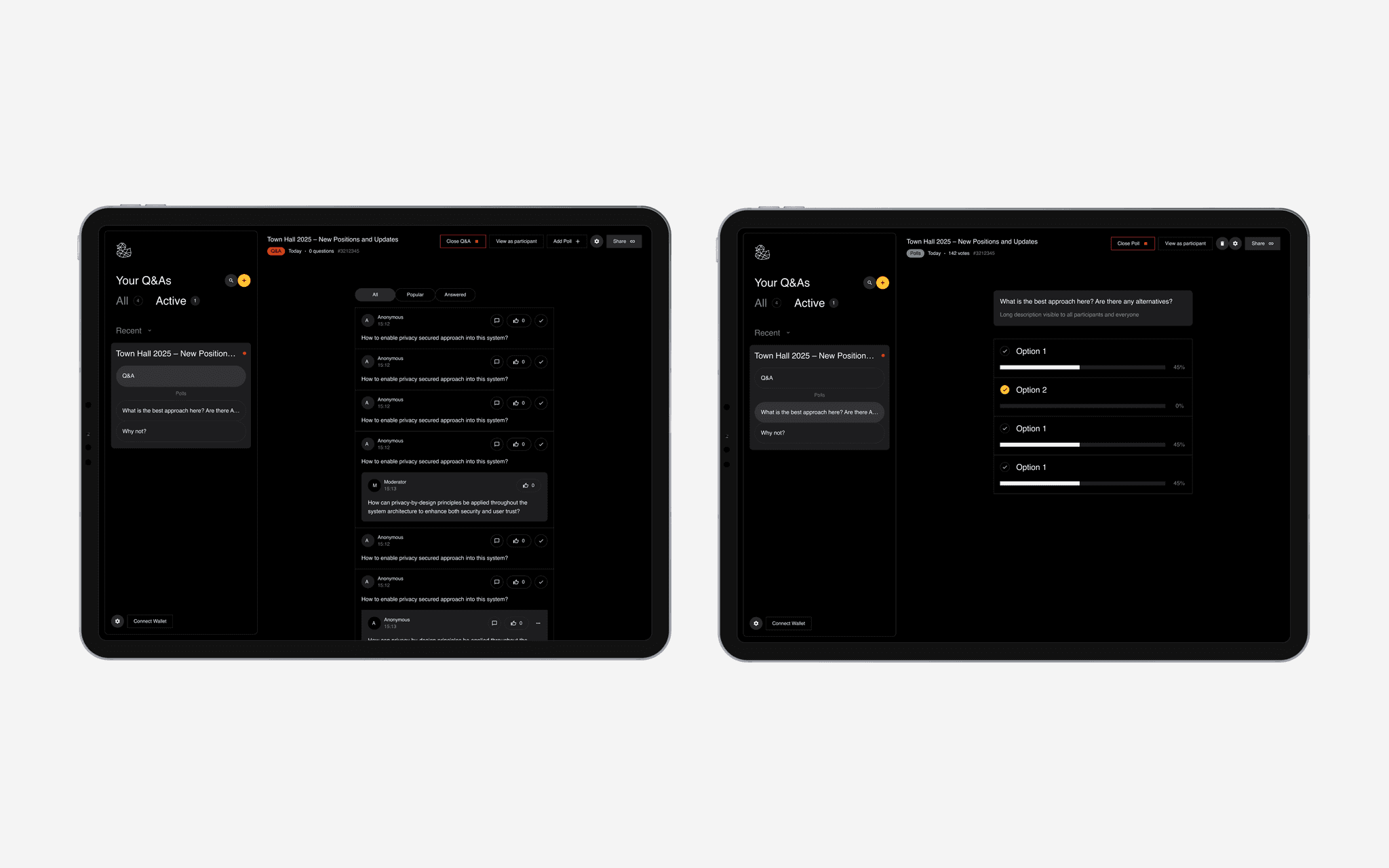

Q&A and Polls live
Q&A and Polls live
Identity
Identity
The product was internally nicknamed Qaku, derived from the team name Waku and inspired by the sound “quak.”
The logo was designed by the graphic design team, and I integrated it into the product’s identity system.
The product was internally nicknamed Qaku, derived from the team name Waku and inspired by the sound “quak.”
The logo was designed by the graphic design team, and I integrated it into the product’s identity system.
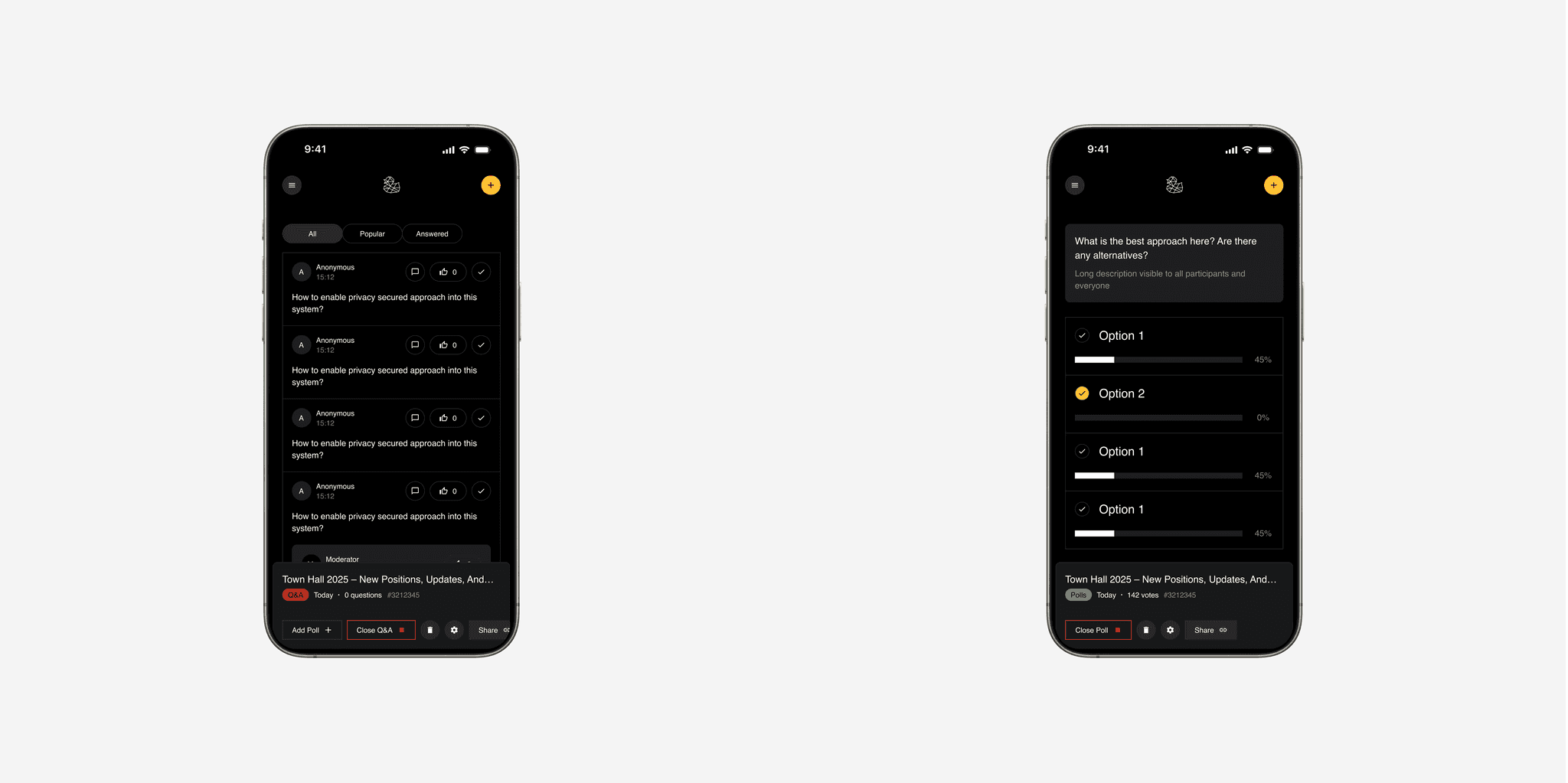

Mobile Published Q&A and Polls
Mobile Published Q&A and Polls
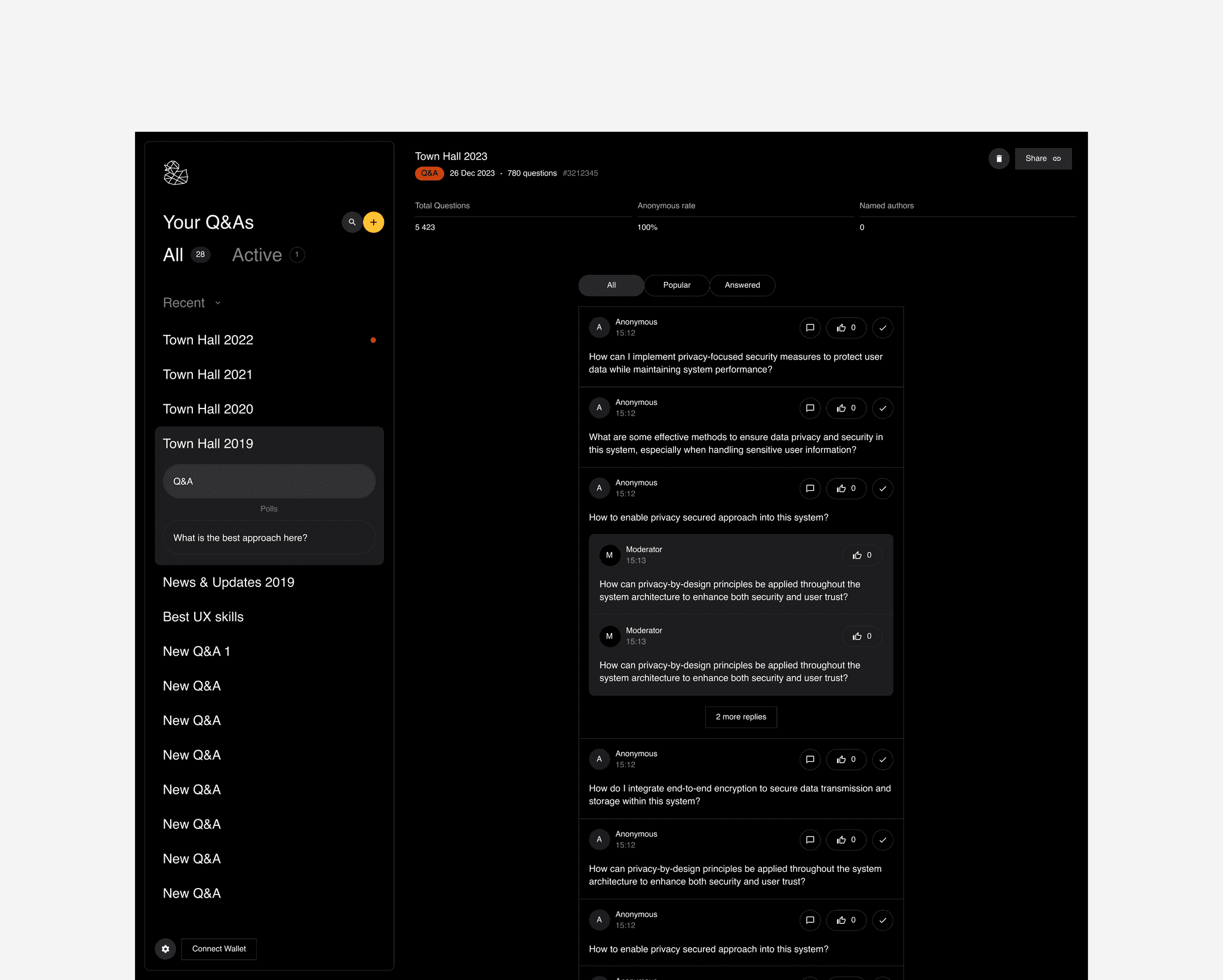

Desktop Manage Q&A
Desktop Manage Q&A
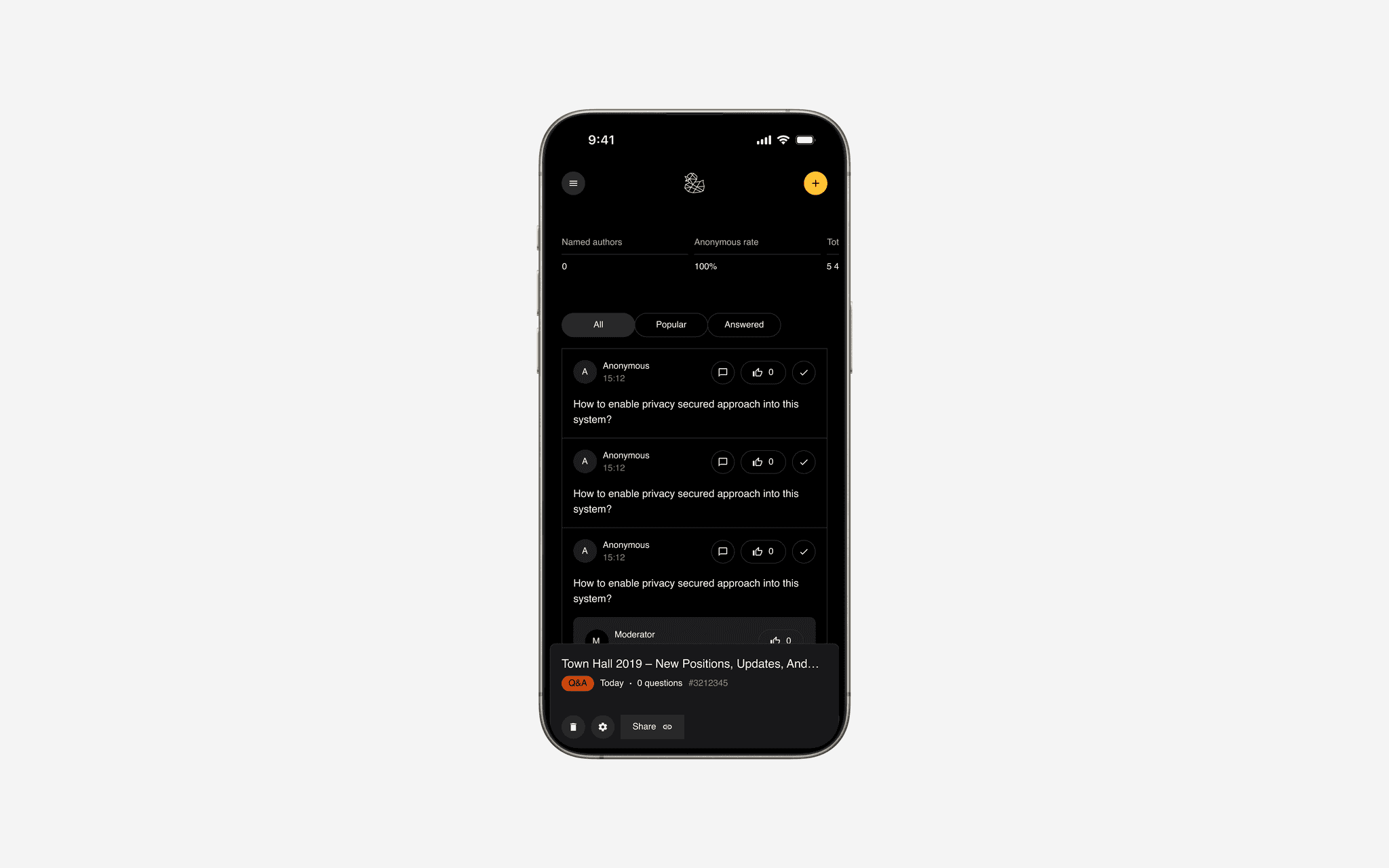

Mobile Manage Q&A
Mobile Manage Q&A
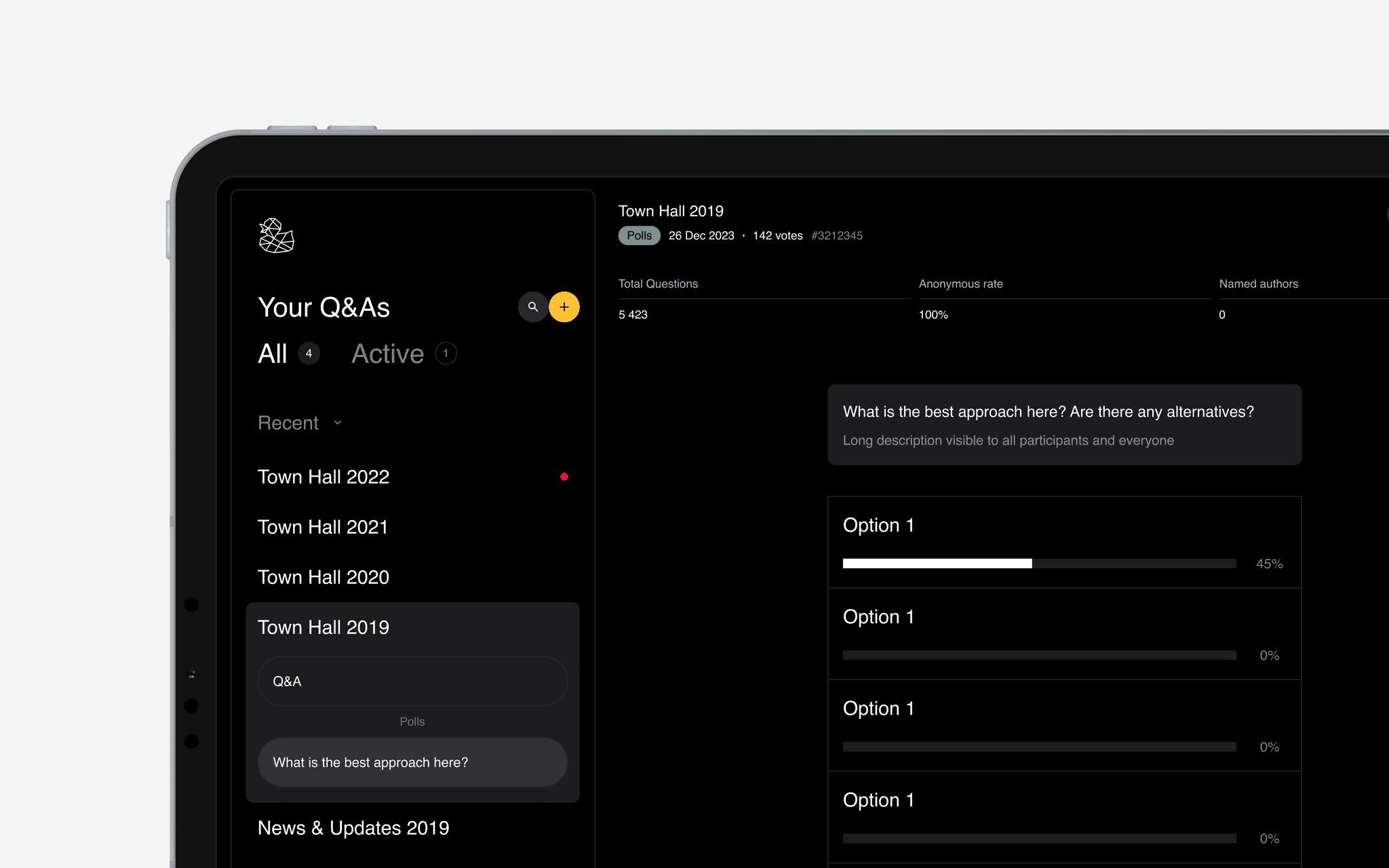

Manage Polls
Manage Polls
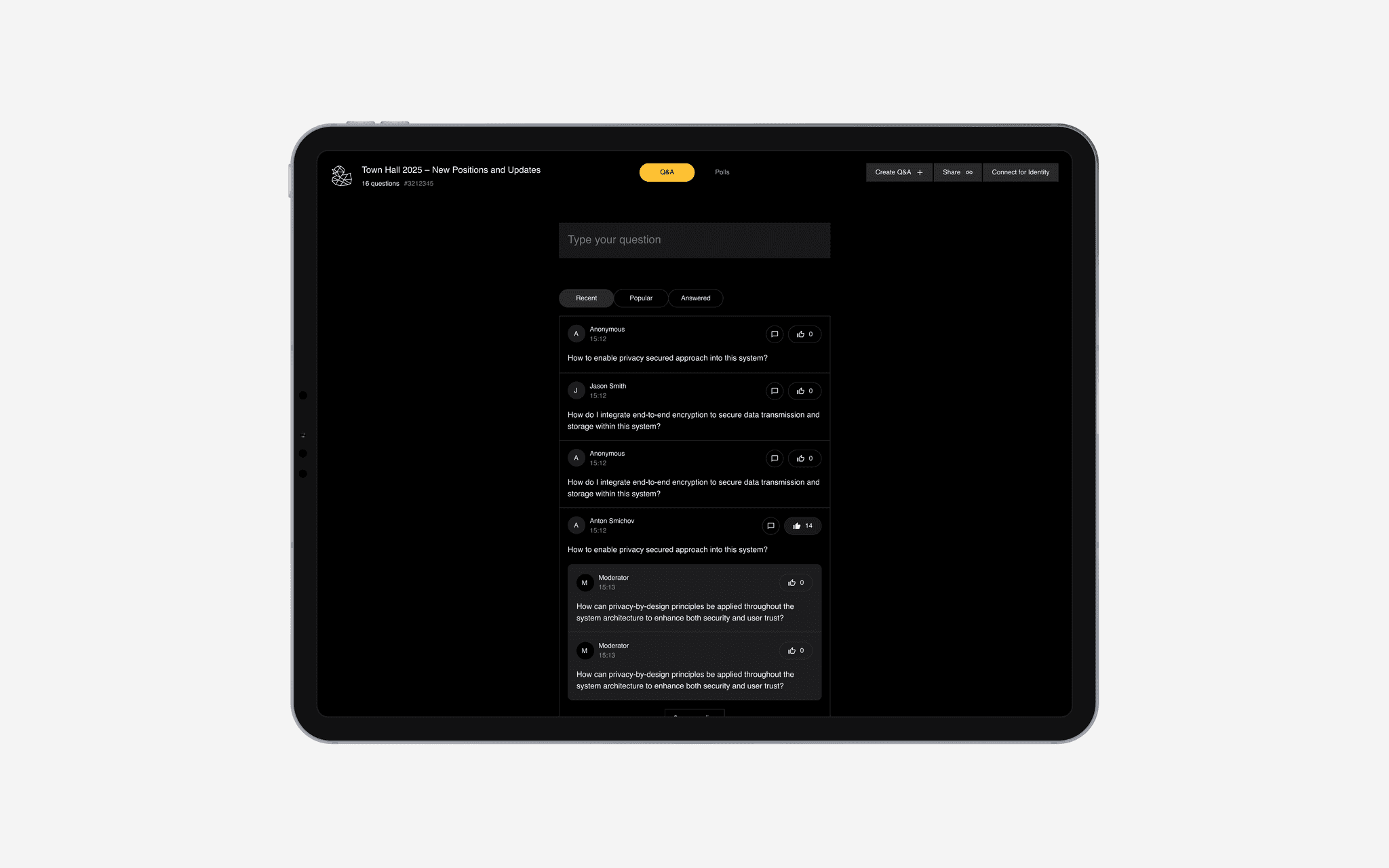

Participant View Q&A
Participant View Q&A
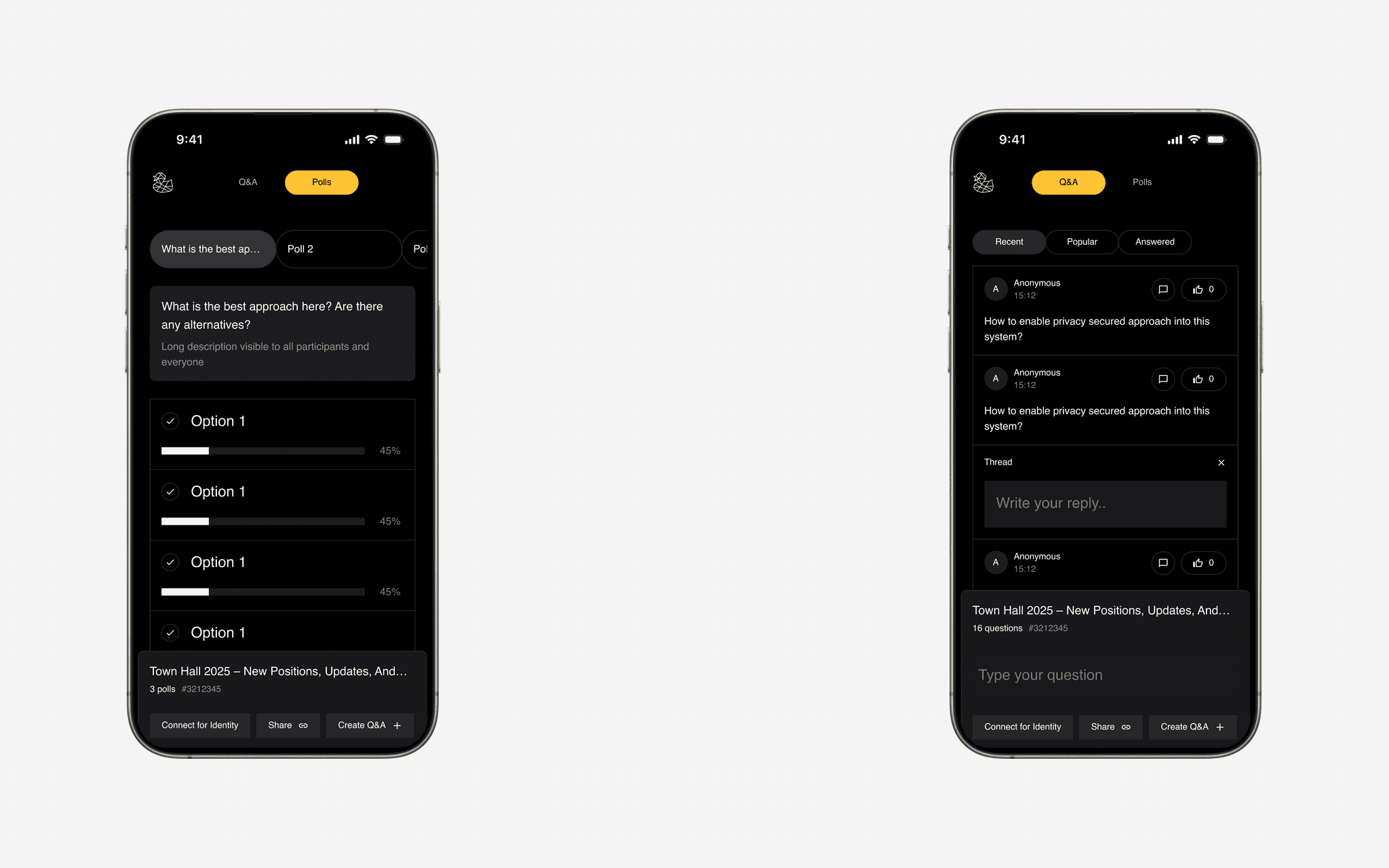

Mobile manage Q&A
Mobile manage Q&A
Results
Results
Positive feedback from first users.
40% faster content creation.
Improved user engagement and clearer flows.
Established a scalable visual, variables-based, system, adaptable to future Qaku and Waku-related projects.
Positive feedback from first users.
40% faster content creation.
Improved user engagement and clearer flows.
Established a scalable visual, variables-based, system, adaptable to future Qaku and Waku-related projects.